Dacia Duster vs Vauxhall Frontera - Differences and prices compared
Compare performance (158 HP vs 145 HP), boot space and price (16300 £ vs 20700 £ ) at a glance. Find out which car is the better choice for you – Dacia Duster or Vauxhall Frontera?
Costs and Efficiency:
When it comes to price and running costs, the biggest differences usually appear. This is often where you see which car fits your budget better in the long run.
Dacia Duster has a noticeable advantage in terms of price – it starts at 16300 £ , while the Vauxhall Frontera costs 20700 £ . That’s a price difference of around 4457 £.
Fuel consumption also shows a difference: Dacia Duster manages with 4.70 L and is therefore a bit more efficient than the Vauxhall Frontera with 5.20 L. The difference is about 0.50 L per 100 km.
Engine and Performance:
Under the bonnet, it becomes clear which model is tuned for sportiness and which one takes the lead when you hit the accelerator.
When it comes to engine power, the Dacia Duster has a barely noticeable edge – offering 158 HP compared to 145 HP. That’s roughly 13 HP more horsepower.
In acceleration from 0 to 100 km/h, the Vauxhall Frontera is slight quicker – completing the sprint in 9 s, while the Dacia Duster takes 9.40 s. That’s about 0.40 s faster.
In terms of top speed, the Vauxhall Frontera performs minimal better – reaching 194 km/h, while the Dacia Duster tops out at 180 km/h. The difference is around 14 km/h.
Both models offer the same torque – 230 Nm.
Space and Everyday Use:
Cabin size, boot volume and payload all play a role in everyday practicality. Here, comfort and flexibility make the difference.
Seats: Vauxhall Frontera offers clearly perceptible more seating capacity – 7 vs 5.
In curb weight, Dacia Duster is hardly perceptible lighter – 1377 kg compared to 1394 kg. The difference is around 17 kg.
In terms of boot space, the Dacia Duster offers to a small extent more room – 517 L compared to 460 L. That’s a difference of about 57 L.
In maximum load capacity, the Dacia Duster performs slight better – up to 1609 L, which is about 9 L more than the Vauxhall Frontera.
When it comes to payload, Vauxhall Frontera evident takes the win – 570 kg compared to 453 kg. That’s a difference of about 117 kg.
Who wins the race?
The Vauxhall Frontera proves to be shows small but notable strengths and therefore becomes our DriveDuel Champion!
Vauxhall Frontera is the better all-rounder in this comparison.
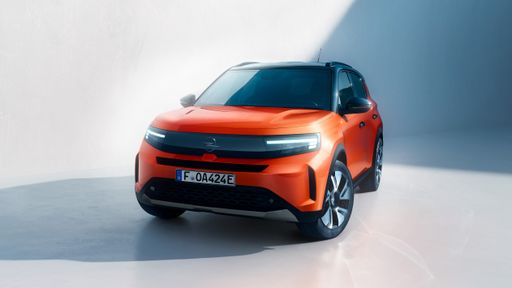
Vauxhall Frontera
Costs and Consumption
View detailed analysis
Engine and Performance
View detailed analysis
Dimensions and Body
View detailed analysis
Dacia Duster
The Dacia Duster is a no-nonsense compact SUV that delivers rugged practicality and surprisingly comfortable everyday driving without fuss. It might not win any beauty contests, but its honest design, easy-to-live-with cabin and tough attitude make it a smart pick for buyers who want reliable transport without luxury frills.
details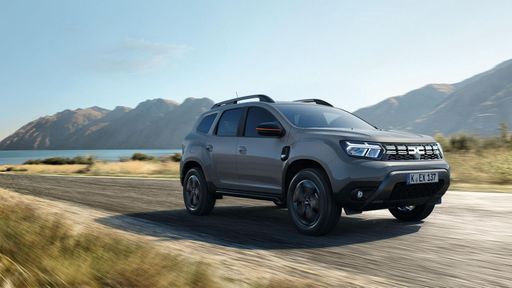
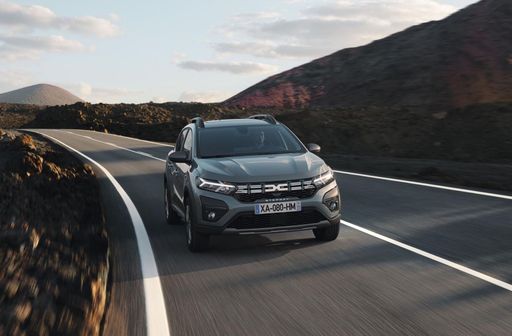
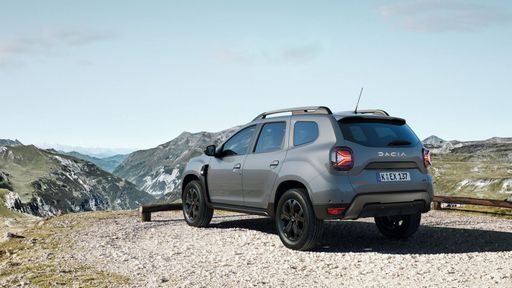
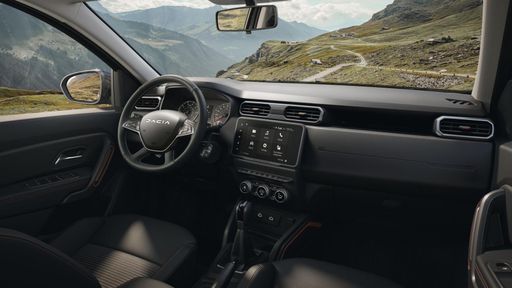
Vauxhall Frontera
The Opel Frontera wears its rugged, go-anywhere intentions proudly, serving up a simple, no-nonsense package that feels as comfortable off the beaten track as it does at the supermarket. It won’t set hearts racing with glamour, but its honest practicality and rugged charm make it a smart pick for buyers who prefer substance over style.
details


Costs and Consumption |
|
|---|---|
|
Price
16300 - 24900 £
|
Price
20700 - 30000 £
|
|
Consumption L/100km
4.7 - 7.5 L
|
Consumption L/100km
5.2 - 5.3 L
|
|
Consumption kWh/100km
-
|
Consumption kWh/100km
15.8 - 18.2 kWh
|
|
Electric Range
-
|
Electric Range
305 - 408 km
|
|
Battery Capacity
0.60 kWh
|
Battery Capacity
-
|
|
co2
107 - 124 g/km
|
co2
0 - 119 g/km
|
|
Fuel tank capacity
50 L
|
Fuel tank capacity
44 L
|
Dimensions and Body |
|
|---|---|
|
Body Type
SUV
|
Body Type
SUV
|
|
Seats
5
|
Seats
5 - 7
|
|
Doors
5
|
Doors
5
|
|
Curb weight
1377 - 1455 kg
|
Curb weight
1394 - 1610 kg
|
|
Trunk capacity
348 - 517 L
|
Trunk capacity
460 L
|
|
Length
4343 mm
|
Length
4385 mm
|
|
Width
1813 mm
|
Width
1795 mm
|
|
Height
1656 - 1659 mm
|
Height
1635 mm
|
|
Max trunk capacity
1414 - 1609 L
|
Max trunk capacity
1600 L
|
|
Payload
450 - 453 kg
|
Payload
436 - 570 kg
|
Engine and Performance |
|
|---|---|
|
Engine Type
Petrol MHEV, Full Hybrid, LPG
|
Engine Type
Electric, Petrol MHEV
|
|
Transmission
Manuel, Automatic
|
Transmission
Automatic
|
|
Transmission Detail
Manual Gearbox, Automated Manual, Dual-Clutch Automatic
|
Transmission Detail
Reduction Gearbox, Dual-Clutch Automatic
|
|
Drive Type
Front-Wheel Drive, All-Wheel Drive
|
Drive Type
Front-Wheel Drive
|
|
Power HP
115 - 158 HP
|
Power HP
110 - 145 HP
|
|
Acceleration 0-100km/h
9.4 - 11.6 s
|
Acceleration 0-100km/h
9 - 14.2 s
|
|
Max Speed
180 km/h
|
Max Speed
143 - 194 km/h
|
|
Torque
190 - 230 Nm
|
Torque
125 - 230 Nm
|
|
Number of Cylinders
3 - 4
|
Number of Cylinders
3
|
|
Power kW
84 - 116 kW
|
Power kW
81 - 107 kW
|
|
Engine capacity
1199 - 1789 cm3
|
Engine capacity
1199 cm3
|
General |
|
|---|---|
|
Model Year
2025
|
Model Year
2024 - 2025
|
|
CO2 Efficiency Class
D, C
|
CO2 Efficiency Class
A, D
|
|
Brand
Dacia
|
Brand
Vauxhall
|
What drivetrain options does the Dacia Duster have?
The Dacia Duster is offered with Front-Wheel Drive or All-Wheel Drive.




